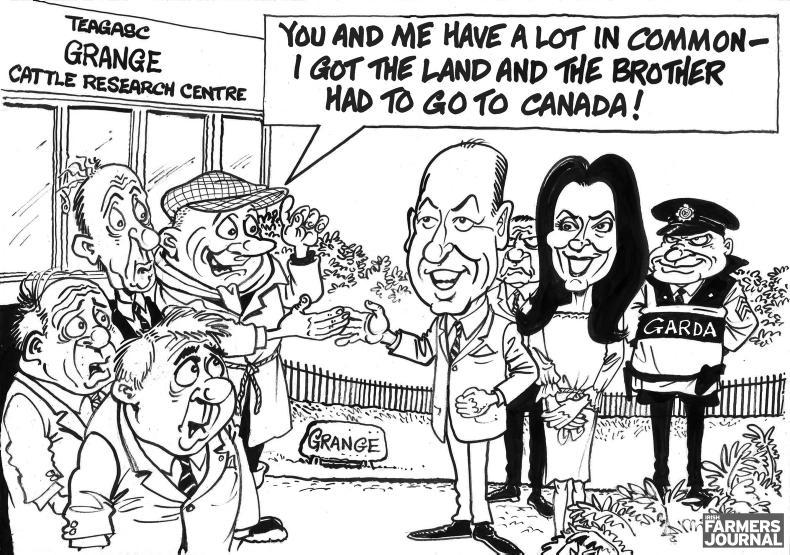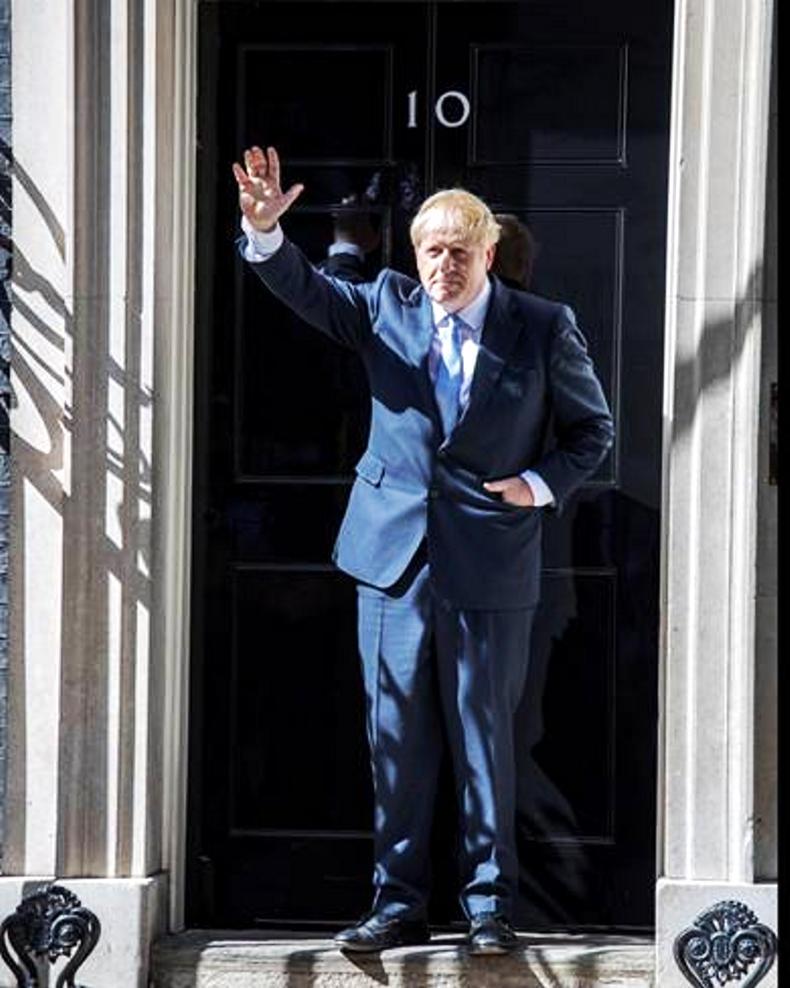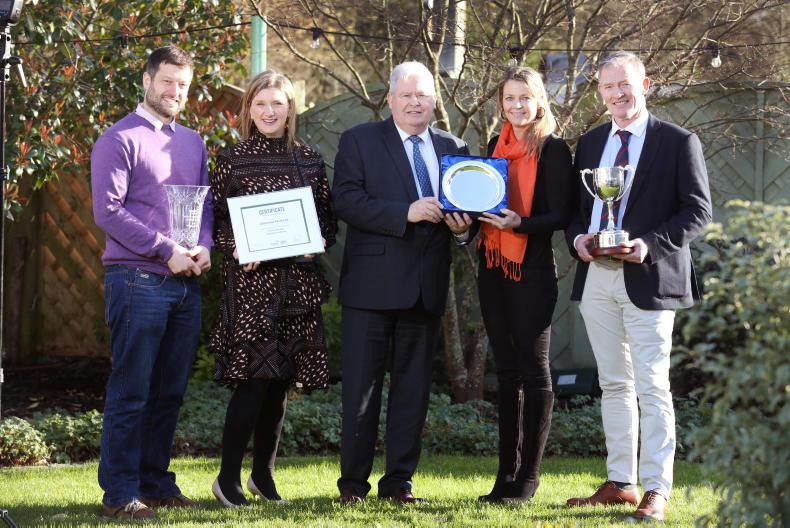While there were no silver bullets, the report released this week by economist Jim Power did contain a number valid recommendations for suckler beef production.
The report concluded that the author “never experienced a supply chain with such a basic lack of trust” – not a good place from which to build a successful beef industry. He urged a full CCPC investigation to provide clarity on the allegation of factory collusion and greater transparency, backed by legislation if necessary.
But factories shouldn’t be waiting for legislation to introduce transparency – it is a single step they could take to demonstrate that they are in the business of maximising returns for farmers as opposed to looking for opportunities to exploit them.
The report also identified changes to the in-spec bonus, a ban on below-cost selling and the development of an Irish suckler beef brand as measures that could deliver a marginal increase in price.
However, delivery across all of these areas would do little to improve the economic viability of the sector. According to the report, the main reason just 14% of our 50,000 livestock farms are now deemed as viable is the fact that since decoupling, there has been a significant transfer of funds from the sector.
It is a trend highlighted in this column last summer which drew attention to the fact that an analysis of Teagasc profit monitor figures over the past decade showed direct supports to the suckler and beef sector fell by the equivalent of €0.70-€1.50/kg deadweight – with the most productive farmers hardest hit.
In this regard, the most important message in the report is a simple one: if suckler farmers do not receive increased supports, the sector won’t survive. There is nothing new in this. Across the world, suckler beef production is only viable where farmers have access to large tracts of unproductive land, can boost performance through growth hormones or are in receipt of support payments that recognise the environmental and economic dividend provided by the sector.
If policy-makers decide that the suckler cow is not worth supporting, then the regional economic impact cannot be ignored
From an Irish and EU perspective, suckler beef systems were developed and sustained on the back of a CAP that, prior to decoupling, targeted 66% of total payments towards the livestock sector – largely in recognition of the environmental and economic dividend. It is the redistribution and erosion of these payments that now threatens its future.
In the absence of a new Government recognising the need to reverse this trend through increased targeted payments, the outlook is bleak. Power warns that if policy-makers decide that the suckler cow is not worth supporting, then the regional economic impact cannot be ignored. This will be felt hardest in border counties and throughout the west where sucklers account for 79% of the cow herd.
Ultimately, the report reinforces why it is critical that the IFA and other farm organisations mount a major campaign in the coming months to ensure the cuts being proposed to the CAP budget do not materialise. There is no sugar-coating it: the scale of the cuts combined with further redistribution of payments would wipe out the suckler sector.
At the same time as fighting cuts to the budget, it is important we develop a credible policy position in relation to the future of the sector. Accessing funding beyond CAP at EU and national level to support a restructuring of the sector should be included in the discussion. Could a possible reduction scheme that delivered a significant payment on the remainder of the herd, plus created tradeable assets in the form of introducing a quota, to be funded through the EU Green Deal and/or a Brexit disturbance fund, be an option?
A key element of this would be repositioning the suckler cow in the climate debate – not just in terms of emissions but also the fact that per kilo of meat protein produced, the suckler cow has one of the lowest requirements for human edible protein – largely due to the fact that grass, which humans cannot digest, constitutes the bulk of the diet.
The argument for support is equally as strong from an economic perspective with previous reports indicating every €1 of direct payments to cattle farms supports €4.28 of output in the wider economy. A strong economic and environmental case can be made to justify increasing support for the suckler sector – the question is will the political appetite exist within the next Government to take action?

\ Jim Cogan
International trade: extent of Brexit cost to the UK causes a shock

The EU and UK started trade negotiations this week. On the same day, the UK published its approach to trade negotiations with the US.
Economic commentators have consistently warned that no matter how favourable the deal, Brexit would cost the UK economy. The UK government’s own assessment put the cost at 4.9% of GDP over 15 years if there was a Canada-style free-trade deal, as preferred by Boris Johnson. This would increase to a massive 7.6% of GDP if they cannot come to any agreement in negotiations.
What comes as a surprise is how little upside there is in being free to agree their own trade deals with global partners outside the EU.
The US has long been suggested by those in favour of Brexit as a wonderful opportunity waiting to be harvested. The benefits of this were quantified this week by the UK government’s Department for International Trade in the publication of the 180-page negotiating document – and they are tiny.
They estimate that a free-trade deal with the US will be worth between 0.07% and 0.16% of GDP over 15 years. Compare this with Brexit costing the UK either 4.9% or 7.6% over the same period and the UK is potentially 100 times worse off in a deal with the US than with EU membership.
You can read Phelim O’Neill's analysis here.
Tillage: awards looking to present and future

Ross Hendy; Aoife Murphy, Glanbia Ireland director of ingredients; Martin Keane, Glanbia chair; Alison Hendy; and agronomist Peter O’Grady. \ Finbarr O'Rourke
Recently, Glanbia Ireland announced the various winners of its quality grain awards for 2019.
Such celebrations are a welcome acknowledgement of the people and performance behind the crop sector in this country.
It is great that Glanbia Ireland is acknowledging this performance and its winning growers across 10 categories of grain.
We congratulate the organisers, category winners and in particular the overall winner, Ross and Alison Hendy from Offaly, who supplied food grade oats.
The various presentations on the day reaffirmed the new €15m investment being made by Glanbia Ireland at its Ballyragget site.
This is to enhance its research and development facility to look at potential synergies between its grains and dairy products.
This is good news for tillage farmers as the sector has never had a development centre to drive innovation for potential crop ingredients. It will bring together both dairy and crop development to help produce new products to meet changing consumer requirements.
Glanbia Ireland has already brought its Avonmore Ready-To-Eat Porridge to the market – a consumer-ready product comprising dairy and crop ingredients.
It is good to get the co-op’s gluten-free oats making its way directly on to Irish supermarket shelves to replace imported ingredients.
FBD results: lower premiums but strong performance
As Lorcan Allen reports this week, FBD plc has announced a pre-tax profit of €112.5m for 2019. Favourable weather conditions alongside a release of €40.1m in previous year reserves helped boost profits by €62m on 2018.
Increased competition in the market did see the insurer report premiums down 2.2% with premiums in their farm business falling 2.5%. While the reduced premiums saw a slight increase in the expense ratio, the sharp downward trend in both the combined operating ratio and loss ratio sees outgoing CEO Fiona Muldoon passing on a business in good health.
While there were no silver bullets, the report released this week by economist Jim Power did contain a number valid recommendations for suckler beef production.
The report concluded that the author “never experienced a supply chain with such a basic lack of trust” – not a good place from which to build a successful beef industry. He urged a full CCPC investigation to provide clarity on the allegation of factory collusion and greater transparency, backed by legislation if necessary.
But factories shouldn’t be waiting for legislation to introduce transparency – it is a single step they could take to demonstrate that they are in the business of maximising returns for farmers as opposed to looking for opportunities to exploit them.
The report also identified changes to the in-spec bonus, a ban on below-cost selling and the development of an Irish suckler beef brand as measures that could deliver a marginal increase in price.
However, delivery across all of these areas would do little to improve the economic viability of the sector. According to the report, the main reason just 14% of our 50,000 livestock farms are now deemed as viable is the fact that since decoupling, there has been a significant transfer of funds from the sector.
It is a trend highlighted in this column last summer which drew attention to the fact that an analysis of Teagasc profit monitor figures over the past decade showed direct supports to the suckler and beef sector fell by the equivalent of €0.70-€1.50/kg deadweight – with the most productive farmers hardest hit.
In this regard, the most important message in the report is a simple one: if suckler farmers do not receive increased supports, the sector won’t survive. There is nothing new in this. Across the world, suckler beef production is only viable where farmers have access to large tracts of unproductive land, can boost performance through growth hormones or are in receipt of support payments that recognise the environmental and economic dividend provided by the sector.
If policy-makers decide that the suckler cow is not worth supporting, then the regional economic impact cannot be ignored
From an Irish and EU perspective, suckler beef systems were developed and sustained on the back of a CAP that, prior to decoupling, targeted 66% of total payments towards the livestock sector – largely in recognition of the environmental and economic dividend. It is the redistribution and erosion of these payments that now threatens its future.
In the absence of a new Government recognising the need to reverse this trend through increased targeted payments, the outlook is bleak. Power warns that if policy-makers decide that the suckler cow is not worth supporting, then the regional economic impact cannot be ignored. This will be felt hardest in border counties and throughout the west where sucklers account for 79% of the cow herd.
Ultimately, the report reinforces why it is critical that the IFA and other farm organisations mount a major campaign in the coming months to ensure the cuts being proposed to the CAP budget do not materialise. There is no sugar-coating it: the scale of the cuts combined with further redistribution of payments would wipe out the suckler sector.
At the same time as fighting cuts to the budget, it is important we develop a credible policy position in relation to the future of the sector. Accessing funding beyond CAP at EU and national level to support a restructuring of the sector should be included in the discussion. Could a possible reduction scheme that delivered a significant payment on the remainder of the herd, plus created tradeable assets in the form of introducing a quota, to be funded through the EU Green Deal and/or a Brexit disturbance fund, be an option?
A key element of this would be repositioning the suckler cow in the climate debate – not just in terms of emissions but also the fact that per kilo of meat protein produced, the suckler cow has one of the lowest requirements for human edible protein – largely due to the fact that grass, which humans cannot digest, constitutes the bulk of the diet.
The argument for support is equally as strong from an economic perspective with previous reports indicating every €1 of direct payments to cattle farms supports €4.28 of output in the wider economy. A strong economic and environmental case can be made to justify increasing support for the suckler sector – the question is will the political appetite exist within the next Government to take action?

\ Jim Cogan
International trade: extent of Brexit cost to the UK causes a shock

The EU and UK started trade negotiations this week. On the same day, the UK published its approach to trade negotiations with the US.
Economic commentators have consistently warned that no matter how favourable the deal, Brexit would cost the UK economy. The UK government’s own assessment put the cost at 4.9% of GDP over 15 years if there was a Canada-style free-trade deal, as preferred by Boris Johnson. This would increase to a massive 7.6% of GDP if they cannot come to any agreement in negotiations.
What comes as a surprise is how little upside there is in being free to agree their own trade deals with global partners outside the EU.
The US has long been suggested by those in favour of Brexit as a wonderful opportunity waiting to be harvested. The benefits of this were quantified this week by the UK government’s Department for International Trade in the publication of the 180-page negotiating document – and they are tiny.
They estimate that a free-trade deal with the US will be worth between 0.07% and 0.16% of GDP over 15 years. Compare this with Brexit costing the UK either 4.9% or 7.6% over the same period and the UK is potentially 100 times worse off in a deal with the US than with EU membership.
You can read Phelim O’Neill's analysis here.
Tillage: awards looking to present and future

Ross Hendy; Aoife Murphy, Glanbia Ireland director of ingredients; Martin Keane, Glanbia chair; Alison Hendy; and agronomist Peter O’Grady. \ Finbarr O'Rourke
Recently, Glanbia Ireland announced the various winners of its quality grain awards for 2019.
Such celebrations are a welcome acknowledgement of the people and performance behind the crop sector in this country.
It is great that Glanbia Ireland is acknowledging this performance and its winning growers across 10 categories of grain.
We congratulate the organisers, category winners and in particular the overall winner, Ross and Alison Hendy from Offaly, who supplied food grade oats.
The various presentations on the day reaffirmed the new €15m investment being made by Glanbia Ireland at its Ballyragget site.
This is to enhance its research and development facility to look at potential synergies between its grains and dairy products.
This is good news for tillage farmers as the sector has never had a development centre to drive innovation for potential crop ingredients. It will bring together both dairy and crop development to help produce new products to meet changing consumer requirements.
Glanbia Ireland has already brought its Avonmore Ready-To-Eat Porridge to the market – a consumer-ready product comprising dairy and crop ingredients.
It is good to get the co-op’s gluten-free oats making its way directly on to Irish supermarket shelves to replace imported ingredients.
FBD results: lower premiums but strong performance
As Lorcan Allen reports this week, FBD plc has announced a pre-tax profit of €112.5m for 2019. Favourable weather conditions alongside a release of €40.1m in previous year reserves helped boost profits by €62m on 2018.
Increased competition in the market did see the insurer report premiums down 2.2% with premiums in their farm business falling 2.5%. While the reduced premiums saw a slight increase in the expense ratio, the sharp downward trend in both the combined operating ratio and loss ratio sees outgoing CEO Fiona Muldoon passing on a business in good health.









 This is a subscriber-only article
This is a subscriber-only article











SHARING OPTIONS: